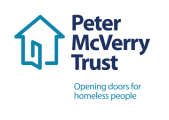Generally speaking…
Although there is no universally accepted definition of homelessness, it can be defined narrowly to include only people without a roof over their heads, or it can be defined more broadly, as is the case in many countries in the world.
The broader definition would include people experiencing homelessness as people who are sleeping rough, people who are accessing temporary accommodation like hostels and B&Bs, and people who live in insecure and inadequate housing, like squats.
In Ireland, the figures that are reported each month by the Department of Housing, Local Government and Heritage in relation to homelessness refer to the number of adults and children in Ireland accessing temporary, emergency accommodation.

